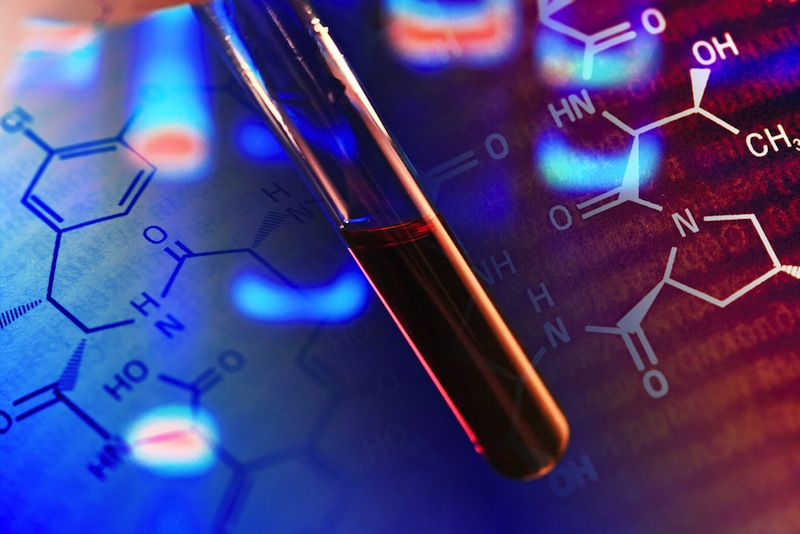How Long Will You Be Laid Up After Surgery? Blood Test May Tell

Recovery from surgery can be quick and relatively painless for some, but a months-long slog for others. Now, researchers say they may be able figure out ahead of time how long a patient will be laid up after an operation, by looking at their immune cells.
In a new study, researchers scrutinized the activity of a type of immune system cell called a CD14+ monocyte. They found that how active these cells are may determine how long it will be before a patient feels better, according to the study.
"Not only are [chemical markers] there to tell us about the recovery of these patients, they are probably important in the healing process," said Brice Gaudillière, the lead author of the paper and an instructor at Stanford University School of Medicine.
The research team took blood samples from 32 patients, ages 50 to 80, before and after hip replacement surgery. The samples were taken one hour before the operation, and then three times afterwards, at one hour, 24 and 72 hours.
Using a technique called single-cell mass cytometry, the researchers "froze" the cells, stopping their activity, and then examined what kinds of signals the cells sent to each other, and what the cells were doing internally. [7 Medical Myths Even Doctors Believe]
The researchers found that when a subset of CD14+ cells were very active, patients seemed to get better faster. CD14+ cells make up only a small part of the cell population in the blood. When some type of trauma occurs, they start sending out chemical signals. It is these chemical markers that appear on blood tests within 24 hours after surgery, according to the study.
In the study, there wasn't any one chemical signal that indicated better recovery, it was a combination of signals that indicated what the cells' activity levels were, the researchers said.
Sign up for the Live Science daily newsletter now
Get the world’s most fascinating discoveries delivered straight to your inbox.
What seems to be happening — although the research hasn't completely proved this— is that some of the cells suppress inflammation, and the more active these cells are, the faster a person recovers, according to the study.
Even though the number of study participants was relatively small, the researchers saw a large difference between those with very active CD14+ cells, and those with less active cells, so the findings are pretty robust, Gaudillière said.
Until this study, the amount of variability in people's recovery times that could be explained by their immune markers was 2 to 10 percent, and that amount of variability is so small that it isn't useful in real-life situations, Gaudillière told Live Science. With the new finding, 40 to 60 percent of variability can be explained, he said.
The findings are based on how these immune system cells work. After an injury to the body (which, in a sense, is what happens during a surgical operation), monocytes flood the injured area, sometimes causing inflammation and swelling.
This is part of the healing process, but if carried too far, it can cause problems such as chronic diseases like arthritis. So, after the initial rush of activity, another set of cells suppresses this immune response, turning down the inflammation, allowing the tissue to get on with the repair.
The CD14+ cells are among those that respond to injuries, and they can also stimulate or suppress inflammation. That's why their level of activity correlates with people's recovery times, the researchers said.
Patients also filled out questionnaires just before their surgeries and then every three days for six weeks afterwards, rating how energetic they felt and what kinds of activities they could engage in. The researchers compiled the patients' answers and turned them into a numerical score.
The scores were consistently higher at the end of the six-week period, for those with the highest levels of activity in the immune cells.
The study is an important one that shows what new technologies for studying cells can do, said Dr. Ronald Tompkins, a professor of surgery at Harvard Medical School who was not involved in the research. "Such strategies are extremely important to better understand the molecular basis of actual human physiology and pathophysiology," he said.
It was a surprise that such a relatively small study could show such visible results, Tompkins told Live Science. Future work in this area should involve more patients, who have more radical surgeries, such as those studied in research on injuries. A bigger group of study participants would also solidify the correlations found here.
Although the goal of the research is to be able to tell patients, before they go into surgery, how long it may take them to recover, the blood tests don't show that yet, Gaudillière said. Rather, the cell activity that correlates with recovery times can be picked up only after surgery.
But the team is working on streamlining the technique itself, and making it cheap enough to use in the clinic. In their current form, the blood tests could help doctors come up with course of recovery tailored to patients, and that by itself can make a big difference in quality of patient's recovery, he said.
The study appears today (Sept. 24) in the journal Science Translational Medicine.
Follow Live Science @livescience, Facebook & Google+. Originally published on Live Science.










